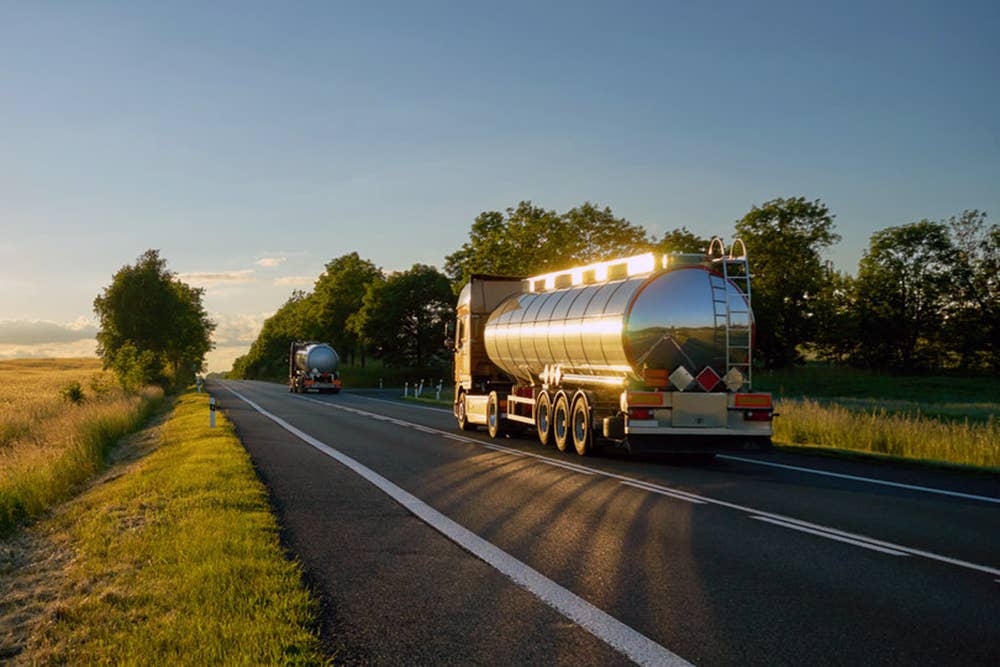Darling Ingredients Acquires Valley Protein in Move to Target SAF market
Deal gives sustainable energy company low-carbon feedstock that could be used to make sustainable aviation fuel.

Darling Ingredients converts food waste into ingredients that can be used for nutrition and sustainable energy. [Courtesy: Darling Ingredients]
Darling Ingredients (NYSE: DAR), a Texas-based company that collects and converts food waste into ingredients that can be used for nutrition and sustainable energy, announced Wednesday that it has acquired Virginia-based Valley Proteins for $1.1 billion in cash.
Darling hopes this move will finally help it to pursue the sustainable aviation fuel (SAF) market as chairman and chief executive officer, Randall C. Stuewe pointed out in a statement.
“Valley Proteins will supplement Darling's global supply of waste fats and greases,” he said. “The new supply will now provide Darling with additional low-carbon feedstock to produce renewable diesel and potentially sustainable aviation fuel."
With the purchase, Darling will gain access to 18 rendering and used cooking oil facilities throughout the southern, southeast, and mid-Atlantic regions of the U.S. as well as Valley’s 1,900 employees and its fleet of 550 vehicles.
While renewable diesel has a different chemical composition and specification than SAF as certified by the American Society for Testing and Materials (ASTM), Darling and its partners are hoping to make the adjustments needed in its operation to pursue this new market segment. The sustainable aviation fuel market is projected to grow from $66 million to $15 billion by 2030.
Ingredients in Place to Target Aviation Market
Darling may be able to jump in the SAF market because of its partnership with Valero Energy (NYSE: VLO), an independent refining and ethanol production company. The two firms operate a 50-50 joint venture under the name Diamond Green Diesel (DGD) that converts lipids, including waste products, to hydrocarbons in the form of renewable diesel. Darling's vertically integrated supply chain provides DGD with low-cost feedstocks, which when combined with the refining support of Valero, makes DGD one of the lowest cost producers of renewable fuels in North America.
On their third-quarter earnings call earlier this year, Stuewe said DGD “could sell over 700 million gallons of renewable diesel in 2022 as the engineering team continues to fine tune the performance of this expansion.”
One early indication that Darling would pursue this came on their 2019 fourth quarter earnings call where Stuewe hinted at the roadmap for the company amidst otherwise strong demand at their plants, which are labelled DGD I to IV.
“We're very confident of the global demand for the product,” he said. “As we've talked about, DGD I and II are very well committed into 2022 now, and we continue to see a global market developing from really just transportation fuels today,” Stuewe said.
“We're also part of the engineering in DGD III and then the consideration of a sister plant, DGD IV, we'll look at aviation and then cold weather fuels as we see a continuing growing market around the world for these.”
On that call, Stuewe also pointed out his company’s procurement and refinery advantage, saying “unless you've got the supply chain locked up and know how to originate, it's a very, very complicated business to get in. The cracking of the molecule is one thing, the origination of the fad is another thing.
“The advantage we have is very, very significant and we feel very good about it for the next three-plus years going forward,” he continued. “I feel pretty confident that Valero and ourselves will come to the final decision on DGD III in a positive way driven by global demand, and once we get our engineering estimate firmed up, we'll come with DGD IV.”
Making Use of Favorable Tax Credits
The early adoption of SAF was sped up in 2019 when California introduced its Low Carbon Fuel Standard (LCFS) program as a credit-generating fuel. Oregon followed shortly after, and more states might follow. Analysts argue that these LCFS credits are hugely beneficial to companies that can secure them because of the projected revenue it will generate.
Darling has acknowledged this on various earning calls as well.
“The success in California and the fact that the market has responded with low-carbon alternatives, not only renewable diesel but others, is extremely positive for expansion in these programs,” said John Bullock, an executive vice president for specialty ingredients and chief strategy officer at Darling said during the 2021 third quarter earnings call.
Furthermore, when Goldman Sachs Analyst Adam Samuelson queried about the benefits of the Build Back Better Act that was being deliberated at the time, Stuewe was quick to point out that “the Build Back Better social spending plan…is probably the single most bullish thing that we've seen in many years that gives certainty of our participation in the climate change discussion.” He was also keen to point out the focus on producers and production of SAF in the credit that offered his company “extreme favorability.”

Subscribe to Our Newsletter
Get the latest FLYING stories delivered directly to your inbox






